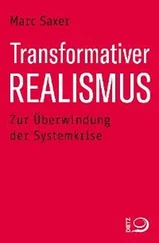Mark Fisher - Capitalist Realism - Is There No Alternative?
Здесь есть возможность читать онлайн «Mark Fisher - Capitalist Realism - Is There No Alternative?» весь текст электронной книги совершенно бесплатно (целиком полную версию без сокращений). В некоторых случаях можно слушать аудио, скачать через торрент в формате fb2 и присутствует краткое содержание. Жанр: Старинная литература, на английском языке. Описание произведения, (предисловие) а так же отзывы посетителей доступны на портале библиотеки ЛибКат.
- Название:Capitalist Realism: Is There No Alternative?
- Автор:
- Жанр:
- Год:неизвестен
- ISBN:нет данных
- Рейтинг книги:4 / 5. Голосов: 1
-
Избранное:Добавить в избранное
- Отзывы:
-
Ваша оценка:
- 80
- 1
- 2
- 3
- 4
- 5
Capitalist Realism: Is There No Alternative?: краткое содержание, описание и аннотация
Предлагаем к чтению аннотацию, описание, краткое содержание или предисловие (зависит от того, что написал сам автор книги «Capitalist Realism: Is There No Alternative?»). Если вы не нашли необходимую информацию о книге — напишите в комментариях, мы постараемся отыскать её.
Capitalist Realism: Is There No Alternative? — читать онлайн бесплатно полную книгу (весь текст) целиком
Ниже представлен текст книги, разбитый по страницам. Система сохранения места последней прочитанной страницы, позволяет с удобством читать онлайн бесплатно книгу «Capitalist Realism: Is There No Alternative?», без необходимости каждый раз заново искать на чём Вы остановились. Поставьте закладку, и сможете в любой момент перейти на страницу, на которой закончили чтение.
Интервал:
Закладка:
The woman felt it too. She looked frightened. Holding the
brass necklace up close to her throat like a talisman, she was
staring in dismay, shock, terror, out of the window at the view.
[...] What would it do to the woman? Would she under
stand, would she go mad, what would she do? Would she
keep both memories, as he did, the true one and the new one,
the old one and the true one?
Does she 'go crazy'? No, not at all: after a few moments of bewildered fugue, Heather Lelache accepts the 'new' world as the 'true' world, editing out the point of suture. This strategy -of accepting the incommensurable and the senseless without question -has always been the exemplary technique of sanity as such, but it has a special role to play in late capitalism, that 'motley painting of everything that ever was', whose dreaming up and junking of social fictions is nearly as rapid as its production and disposal of commodities.
In these conditions of ontological precarity, forgetting becomes an adaptive strategy. Take the example of Gordon Brown, whose expedient reinvention of his political identity involved an attempt to induce a collective forgetting. In an article in International Socialism, John Newsinger remembers how
Brown told the Confederation of British Industry conference that 'business is in my blood'. His mother had been a company director and 'I was brought up in an atmosphere where I knew exactly what was happening as far as business was concerned'. He was, indeed he had always been, one of them. The only problem is that it was not true. As his mother subsequently admitted, she would never have called herself 'a business woman': she had only ever done some 'light administrative duties' for'a small family firm' and had given up the job when she married, three years before young Gordon was even born. While there have been Labor politicians who have tried to invent working class backgrounds for themselves before, Brown is the first to try and invent a capitalist background.
Newsinger contrasts Brown with his rival and predecessor as British prime minister, Tony Blair, a very different case. While Blair -who presented the strange spectacle of a postmodern messianism -never had any beliefs that he had to recant on, Brown's move from Presbyterian socialist to New Labour supremo was a long, arduous and painful process of repudiation and denial. 'Whereas, for Blair, the embrace of neoliberalism involved no great personal struggle because he had no previous beliefs to dispose of', Newsinger writes, 'for Brown it involved a deliberate decision to change sides. The effort, one suspects, damaged his personality'. Blair was the Last Man by nature and inclination; Brown has become the Last Man, the dwarf at the End of History, by force of will.
Blair was the man without a chest, the outsider the party needed in order to get into power, his joker hysterical face salesman-smooth; Brown's implausible act of self-reinvention is What the party itself had to go through, his fake-smile grimace the objective correlative of Labour's real state now that it has completely capitulated to capitalist realism: gutted, and gutless, its insides replaced by simulacra which once looked lustrous but now possess all the allure of decade-old computer technology.
Inconditions where realities and identities are upgraded like software, it is not surprising that memory disorders should have become the focus of cultural anxiety -see, for instance, the Bourne films, Memento, Eternal Sunshine Of the Spotless Mind. Inthe Bourne films, Jason Bourne's quest to regain his identity goes alongside a continual flight from any settled sense of self. 'Try to understand me... " says Bourne in the original novel by Robert Ludlum,
I have to know certain things ... enough to make a decision ... but maybe not everything. A part of me has to be able to walk away, disappear. I have to be able to say to myself, what was isn't any longer, and there's a possibility that it never was because I have no memory of it. What a person can't remember didn't exist.... for him.
Inthe films, Bourne's transnational nomadism is rendered in an ultra-fast cutting style which functions as a kind of anti-memory, pitching the viewer into the vertiginous 'continuous present' which Jameson argues is characteristic of postmodern temporality. The complex plotting of Ludlum's novels is transformed into a series of evanescent event-ciphers and action set pieces which barely cohere into an intelligible narrative. Bereft of personal history, Bourne lacks narrative memory, but retains what we might call formal memory: a memory -of techniques, practices, actions -that is literally embodied in a series of physical reflexes and tics. Here, Bourne's damaged memory echoes the postmodern nostalgia mode as described by Fredric Jameson, in which contemporary or even futuristic reference at the level of content obscure a reliance on established or antiquated models at the level of form. On the one hand, this is a culture that privileges only the present and the immediate -the extirpation of the long term extends backwards as well as forwards in time (for example, media stories monopolize attention for a week or so then are instantly forgotten); on the other hand, it is a culture that is excessively nostalgic, given over to retrospection, incapable of generating any authentic novelty. It may be that Jameson's identification and analysis of this temporal antimony is his most important contribution to our understanding of postmodern/post-Fordist culture. '[T]he paradox from which we must set forth,' he argues in 'Antimonies Of The Postmodern',
is the equivalence between an unparalleled rate of change on all the levels of social life and an unparalleled standardization of everything -feelings along with consumer goods, language along with built space -that would seem incompatible with such mutability... What then dawns is the realization that no society has ever been as standardized as this one, and that the stream of human, social and historical temporality has never flowed quite so homogenously.... What we now begin to feel, therefore -and what begins to emerge as some deeper and more fundamental constitution of postmodernity itself, at least in its temporal dimension -is henceforth, where everything now submits to the perpetual change of fashion and media image, that nothing can change any longer.
No doubt this is another example of the struggle between the forces of deterritorialization and reterritorialization which Deleuze and Guattari argue is constitutive of capitalism as such. It wouldn't be surprising if profound social and economic instability resulted in a craving for familiar cultural forms, to which we return in the same way that Bourne reverts to his core reflexes. The memory disorder that is the correlative of this situation is the condition which afflicts Leonard in Memento, theoretically pure anterograde amnesia. Here, memories prior to the onset of the condition are left intact, but sufferers are unable to transfer new memories into long term memory; the new therefore looms up as hostile, fleeting, un-navigable, and the sufferer is drawn back to the security of the old. The inability to make /lew memories: a succinct formulation of the postmodern impasse....
If memory disorder provides a compelling analogy for the glitches in capitalist realism, the model for its smooth functioning would be dreamwork. When we are dreaming, we forget, but immediately forget that we have done so; since the gaps and lacunae in our memories are Photoshopped out, they do not trouble or torment us. What dreamwork does is to produce a confabulated consistency which covers over anomalies and contradictions, and it is this which Wendy Brown picked up on when she argued that it was precisely dreamwork which provided the best model for understanding contemporary forms of power. In her essay 'American Nightmare: Neoconservatism, Neoliberalism, and De-democratization', Brown unpicked the alliance between neoconservatism and neoliberalism which constituted the American version of capitalist realism up until 2008. Brown shows that neoliberalism and neoconservatism operated from premises which are not only inconsistent, but directly contradictory. 'How', Brown asks,
Читать дальшеИнтервал:
Закладка:
Похожие книги на «Capitalist Realism: Is There No Alternative?»
Представляем Вашему вниманию похожие книги на «Capitalist Realism: Is There No Alternative?» списком для выбора. Мы отобрали схожую по названию и смыслу литературу в надежде предоставить читателям больше вариантов отыскать новые, интересные, ещё непрочитанные произведения.
Обсуждение, отзывы о книге «Capitalist Realism: Is There No Alternative?» и просто собственные мнения читателей. Оставьте ваши комментарии, напишите, что Вы думаете о произведении, его смысле или главных героях. Укажите что конкретно понравилось, а что нет, и почему Вы так считаете.












